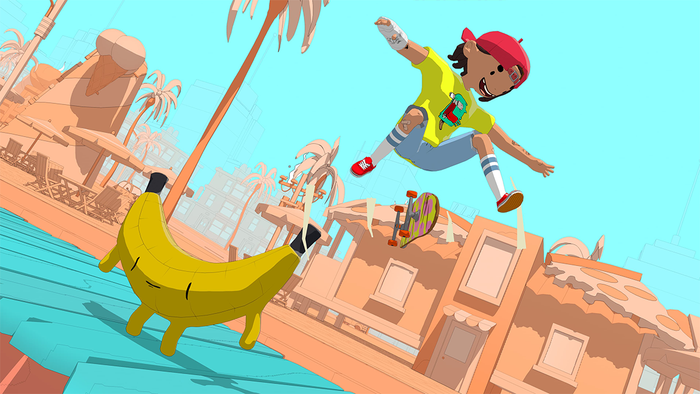How to Save Time & Cut Costs - The RIGHT Way! - in the Game Translation Process
Myth #3: Prior localization efforts are unnecessary to current translators of my games. - Learn how to avoid paying threefold unnecessarily by effectively utilizing work that has already been done and sidestep avoidable quality issues.

Fact: Over 50% of worldwide video game revenue comes from markets outside the US.
Despite the importance of making games available in a variety of languages for gamers across global markets, translation and localization is still a source of confusion for many developers. Due to the number of easily-avoided issues encountered by game translation and localization companies on a regular basis, we realized the value to the entire development community to dispel common myths regarding the localization process, thereby perpetuating a network of informed developers to ultimately enhance decisions regarding game translation, producing a global library of games with quality localization.
In part 1, you learned how switching localization vendors can have a negative impact on your company’s financial statement, and in part 2, we discussed the core quality issues that set one vendor apart from another. Thus far in our “Top 5 Myths & Facts” series, we have covered
- Myth 1: A translation is a translation is a translation – In the long run, cheaper is better for my company’s bottom line, so I should always be searching for vendor alternatives.
- Myth 2: Translation vendors are all built the same. There’s no difference in one agency versus another.
This brings us to Myth #3:
Myth #3: Prior localization efforts are unnecessary to current translators of my games.
Would you want a surgeon operating on you without any knowledge of your medical history – past surgeries and illnesses, allergies, patterns of disease within your family? While localizing a game certainly isn’t life-threatening, that doesn’t mean past localizations don’t have a place in current projects. You don’t want to send translators in blind.
You know that dropdown “synonym” button in Microsoft Word? Think of multiple games in a series, each using different translators without access to prior translation work directly relevant to the current game (a terminology database for the game series). Now imagine the series is sci-fi, and each frequently used keyword has multiple options for translation. Just like receiving roughly 5-10 different possibilities in that dropdown “synonym” tool, each translator is subject to using a different word for each new game in the series or even within the same game! There may very well be no consistency in words like warp speed, cyborg, and lightyear. That may not be a huge deal between games in the same series (although it would be odd for one game to consistently use the word “cyborg” and for the next to refer to those same cyborgs as “robotic humans,” no matter how accurate the two translations may be). However, some game companies won’t hesitate to change translation companies midway through a project. Since these are frequently the same organizations that don’t see the need to provide the translation work completed for the 1st half of the game, the second translator is lost in an ocean of “what ifs”…What if the quality of the 1st translation agency was subpar and the 1st translator didn’t understand science fiction, instead translating warp speed as light speed? What if the 1st translator continuously referred to the Empire as the Galactic Empire, leaving the 2nd half of the game subject to inconsistencies?
The really tricky part is the translations of essential character names, equipment, and places. These items pertinent to the game and overall gameplay are often difficult to duplicate without knowing the prior translation, particularly for names and places invented specifically for the game series. There is no frame of reference for these names, so it is impossible for future translators to know whether to translate by sound, meaning, etc. The world of video games is such a creative space and sometimes, so too are the translations. In our recent post regarding the intricacies of game translation, we discuss the translation challenges unique to video games, including the pairing down of translations to fit UI space. UI considerations and other aspects unique to video games must be balanced with the creative translation puzzles faced by game translators. For example, in addition to developing an entirely new word for a weapon eloquently conveyed in Kanji through wordplay, translators must balance screen space with the translation of 4 separate Japanese characters into a concise equivalent, while maintaining a large part of the meaning expressed in the original text. Therefore, it is nearly impossible for two game translators to develop the exact same translation for the “who,” “where,” and “what” of games – characters, settings, and items.
How do you think players would react if some Final Fantasy games had moogles and others had an alternative translation, like moogrels, for example? The Twitter feed and Facebook pages would be flooded with gamers angry over lack of consistency between games in the same series. What if two different translators had handled Star Wars and had no access to the other translator’s work? In half of the movie, Darth Vader may have ended up as Lord Vader. While a couple instances of Lord Vader would be acceptable to fans, there would have been a big problem if he was Darth Vader for the first half of the movie and Lord Vader for the second half.
Since localization is such a complex process with many decisions made by individuals outside of your control, how can you make sure that you end up with satisfactory results? A: Linguistic QA testing. It is only through linguistic QA testing that all of the elements and decisions made during localization can be seen in-context to make sure they are the choices most appropriate for your game. Of course, experienced game localizers make those decisions all the time, but they’re handicapped because they’re working out of context – typically from an Excel spreadsheet whose layout of in-game dialogue may not even match the flow as experienced by a real gamer. Do you really want the millions of gamers who purchase your game to be the first to actually see your localized game? It would be like skipping normal QA testing during the development process and shipping a game merely on the basis of having built the executable without actually playing the game. (Check out the upcoming interview on our YouTube channel with Language Automation, Inc.’s CEO speaking about these aspects of the game localization process.)
By not providing future translators with previous translation efforts, you are not only squandering the money and time spent on the previous translation, but you are ultimately reducing the overall quality of your game. It takes time for translators to develop quality translations, and you are paying for their time and the output of their time – a database of terminology used on the project in addition to the game translation. The problem with denying future translators access to those terminology records is that you are not only comprising the quality of your game through inconsistencies, but you are also requiring translators to redo work that has already been done. Thus, you are paying threefold unnecessarily – for the time of the original translation plus the 2nd translator’s new translation of terminology used throughout a game/game series; for the output of the two individuals’ translations; and for the inflated workload of the QA tester. If you don’t have a linguistic QA tester ensuring the consistency of terminology throughout the game(s), you are also costing your company PR dollars and quite possibly diminishing your customer base due to a perception of a low quality product.
Do yourself, your translators, your brand, and your consumers a HUGE favor, and absolutely ensure terminology databases make it to relevant translators. It will make a significant impact on your financial statement and will save a huge headache for future translators and QA testers.
Here’s a sneak peek at next week’s topic (watch for it Tuesday, November 13th):
Myth #4: My friend/relative/significant other/guy down the street speaks (insert language), I’ll just have him/her translate my game.
Your game and company brand are at stake, and gamers know what they want when it comes to quality. Don’t repeat the fatal mistakes made by other game developers!
About the Author(s)
You May Also Like







